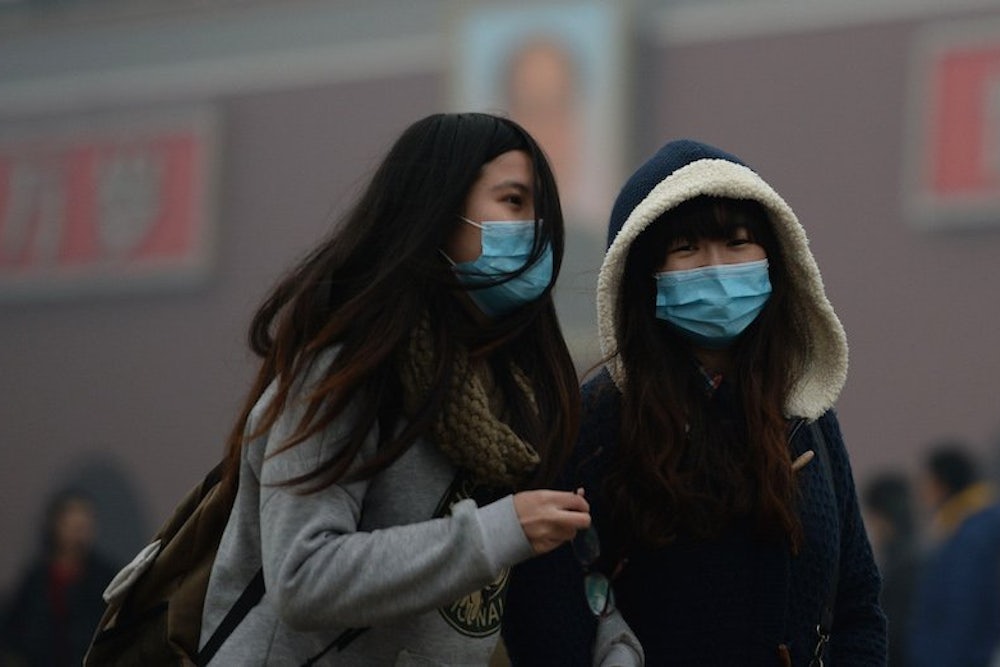Beijing will host the 2022 Winter Olympics, the International Olympic Committee (IOC) announced on Friday. And the biggest loser isn’t Kazakhstan, which lost its bid against China after other cities backed out over cost. It’s the environment.
When Beijing hosted the Summer Olympics in 2008, the biggest concern was that the city’s heavy smog would choke athletes. Now that it’s hosting the Winter Olympics, Beijing has more than dirty air to worry about. As a naturally arid region that’s only growing drier with climate change, it will have to manufacture snow to make the games possible.
During the Sochi games, Russia stockpiled 16 million cubic feet of snow to ensure the ski slopes didn’t run dry. But Beijing won’t be using artificial snow as a backup plan: It will have to create almost all of the snow from scratch. Though China officials have promised to do this in an environmentally friendly way, it seems impossible they can minimize the ecological impact. Moreover, as the IOC acknowledges in an assessment of Beijing’s bid, “The proposed Alpine skiing and sliding venues and the Olympic Village at Yanqing would be adjacent to the 4,600 hectare Songshan National Nature Reserve and is part of the same mountain ecosystem.”
China might be underestimating the water needed to create snow, and overestimating its supply. The same report continues: “The mountain venues would rely completely on artificial snowmaking for the Games. The bid committee provided detailed figures to demonstrate sufficient water for snowmaking from stored run-off and water diverted from existing reservoirs. The Commission considers Beijing 2022 has underestimated the amount of water that would be needed for snowmaking for the Games but believes adequate water for Games needs could be supplied. In addition, the Commission is of the opinion that Beijing 2022 has overestimated the ability to recapture water used for snowmaking.”
About four-fifths of China’s water supply is located in the south, but half of its population and two-thirds of its agriculture are in the north. That means China has already placed an unsustainable strain on its groundwater and aquifers. According to a 2014 study published in Nature Climate Change, “Groundwater is being pumped at far greater rates than it can be naturally replenished, so that many of the largest aquifers on most continents are being mined, their precious contents never to be returned. These include the North China Plain, Australia’s Canning Basin, the Northwest Sahara Aquifer System, the Guarani Aquifer in South America, the High Plains and Central Valley aquifers of the United States, and the aquifers beneath northwestern India and the Middle East.”
China is already outpacing its natural water supply, with or without the Winter Olympics. With the games, it’s setting itself up for a manmade disaster.
